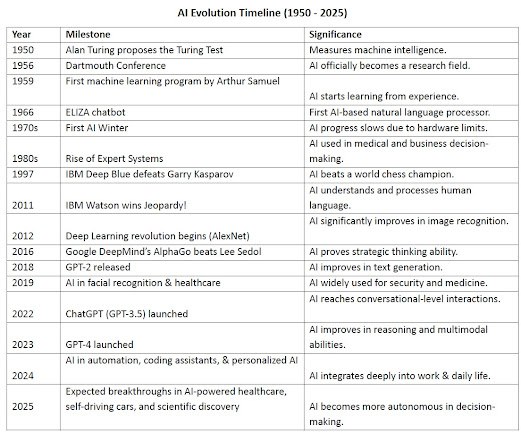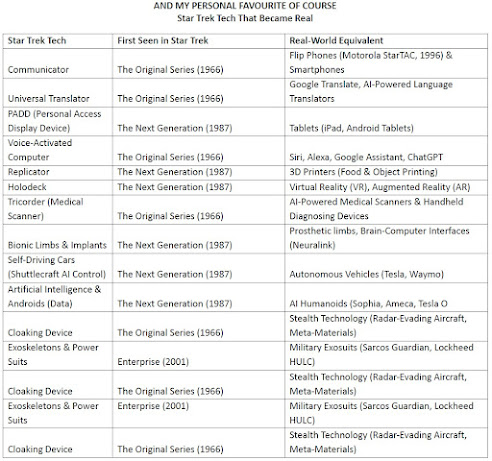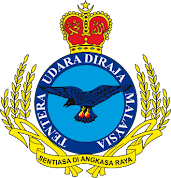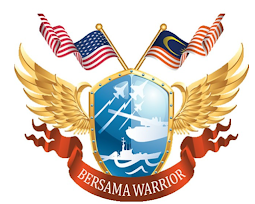Source : The Edge Malaysia
Keretapi Tanah Melayu Berhad (KTM Berhad (KTMB) is the main railway operator in Peninsular Malaysia (West Malaysia). KTMB’s history dates back to the British colonial era since 1885 when railway lines were constructed to transport tin ore from mines to ports.KTMB was known as the Federated Malay States Railway (Keretapi Negeri-Negeri Melayu Bersekutu) and later the Malayan Railways Administration (Pentadbiran Keretapi Tanah Melayu). It was officially named Keretapi Tanah Melayu in 1962. In 1992, KTMB was corporatized, although it remains fully owned by the Malaysian government.
KTMB serves over 100 stations across 10 states in Peninsular Malaysia and Singapore, operating on a rail network spanning 1,677 km. All KTMB tracks use metre gauge (1,000 mm), with approximately 700 km of these tracks electrified. In the fiscal year 2018, KTMB carried 39.5 million passengers and 5.7 million tonnes of cargo. (Source : Wikipedia)
As one of the oldest rail services in the region, its contributions to the nation's economy, connectivity, and industrial growth cannot be overstated.
As any other corporate entity, KTMB has had some share in problems such as Financial struggles, Train service disruptions, Station issues and Delays.
However, KTMB with the help of the government has taken steps to address these issues, including - acquiring new train sets, preventive maintenance and has expanded and diversified its services.
LATEST EFFORTS BY THE MALAYSIAN GOVERNMENT
The Malaysian Government has implemented several initiatives to support and enhance the operations of Keretapi Tanah Melayu Berhad (KTMB). These include:
1. Acquisition of New Train Sets through Leasing Agreements
In August 2024, the government announced plans to acquire 62 new passenger train sets for KTMB via a leasing agreement with China. This initiative, valued at approximately RM10.7 billion, is structured over a 30-year lease period and aims to improve the quality and reliability of KTMB's services. The leasing costs encompass maintenance, repair, and operational services, ensuring sustained performance throughout the lease duration. (Source : BERNAMA)
2. Financial Assistance and Subsidies
The government has provided substantial financial support to KTMB to fulfill its social obligations, particularly in offering affordable fares to the B40 income group. This includes subsidies to maintain low ticket prices, reflecting the government's commitment to public transportation as a social responsibility. (Source : Ministry of Transport)
3. Infrastructure Upgrades and Modernization
Significant investments have been made to upgrade KTMB's infrastructure. Some of notable ones are :
- Electrification and Double Tracking Projects - Projects like the Rawang-Ipoh double tracking and electrification have been completed, enabling trains to operate at higher speeds and improving service efficiency.
- Gemas-Johor Bahru Electrification and Double Tracking - This ongoing project aims to enhance connectivity and reduce travel times between Gemas and Johor Bahru. Although initially expected to be completed by mid-2023, the project has been delayed to mid-2025.
4. Collaboration with Railway Assets Corporation (RAC)
Discussions have been held regarding a potential merger between KTMB and RAC to streamline operations and improve financial sustainability. While a full merger has not been finalized, the government continues to explore ways to enhance coordination between the two entities. (Source : The Malaysian Reserve)
5. Implementation of Green Initiatives
The government, through RAC, has supported green initiatives by installing solar panels at various railway stations. This move aligns with national policies to promote renewable energy and reduce the carbon footprint of public transportation.
These efforts underscore the government's commitment to revitalizing KTMB, ensuring it remains a vital component of Malaysia's public transportation network.
HOW DO I FEEL ABOUT IT?
I feel personally being a user of KTM services for decades, there are more steps can be taken to help revitalize KTMB which require a more multifaceted strategy focusing on operational efficiency, customer satisfaction, financial sustainability, and technological advancements.
The following can be additional points to the revitalization plan.
1. Improve Operational Efficiency
1.1 Optimize Schedules
Analyze demand and adjust train frequencies to minimize empty runs while maximizing usage during peak hours.
1.2 Modernize Rolling Stock
- Invest more in energy-efficient, comfortable, and high-capacity trains to enhance reliability and reduce maintenance costs.
- Streamline Maintenance - Implement predictive maintenance using #IoT sensors to prevent breakdowns and reduce downtime.
2. Additional Infrastructure Upgrade
2.1 Enhance Rail Tracks
Upgrade tracks for high-speed trains and improve connections to industrial hubs.
2.2 Smart Stations
More modernization of train stations with digital ticketing kiosks, real-time arrival displays, and better passenger amenities.
2.3 Electrification
Transition to fully electric trains where feasible to reduce fuel costs and environmental impact.
3. Financial and Policy Reforms
3.1 More Public-Private Partnerships (PPP)
Engage private sector players in funding infrastructure upgrades and service improvements.
3.2 Diversify Revenue Streams
Leverage KTMB-owned land for more commercial development, such as more malls, more offices, and more residential projects.
3.3 Subsidy and Funding
Work more with Malaysian government to secure subsidies for loss-making routes vital for rural connectivity.
4. Enhance Customer Experience
4.1 Digital Transformation
KTM already have an app to book all the train tickets online including train, ETS, Intercity and North Komuter between Kuala Lumpur right up to Padang Besar and other destinations within their operation in Malaysia. Unfortunately, there are still so much improvements can be made to the system based on the comments made by customers on the apps. These comments should be taken seriously, they should be gathered and implement a more effective customer feedback mechanism to address the pain points.
4.2 Safety and Cleanliness
There have been good comments by both locals and foreign tourist on this matter. KTM should maintain this branding of implementing a high standard of safety and cleanliness on trains and at stations.
5. Intercity Connectivity
The routes should be expanded to underserved regions, ensuring better national integration.
6. Freight Services
Optimize freight services to capitalize on the rising demand for cargo transport, especially for e-commerce.
7. Tourism Initiatives
Partner with more tourism boards to offer scenic train routes and travel packages. At the moment Keretapi Tanah Melayu Berhad (KTMB) and Tourism Malaysia have established a robust partnership to promote rail tourism, enhancing Malaysia's appeal as a travel destination. Key collaborative initiatives include:
7.1 "Railway to See Malaysia" Campaign" (Launched May, 2024) - which has helped in increasing passenger numbers ever since.
7.2 Excursion Trains, Promising Perak Edition (Launched September 2024) - which has encouraged domestic and international tourists to explore Perak by train. The initiative will enhance local economic income through effective promotions and attractive packages.
Apart from that Tourism Perak, in collaboration with KTMB, launched rail tourism packages as alternative modes to attract tourists to explore Perak by train. The selection of Taiping as the launch location is significant due to the presence of Malaysia's first railway track, enhancing the historical appeal of these packages.
7.3 Heritage Steam Locomotive Tours – Partnered with with Great Leisure Heritage Rail Sdn Bhd (GLHR), the program is to introduce the Tourism Heritage Steam Locomotive Train. Set to commence operations in January 2025, this service offers a nostalgic 380-kilometer journey from Kuala Lumpur to Butterworth, aiming to attract tourists interested in historical and cultural experiences. (Source : The Star)
7.4 International Tourism Collaborations
In October 2017, Tourism Malaysia and KTMB launched rail packages targeting Southern Thailand. This initiative aimed to promote KTMB packages by travel agents in Southern Thailand and foster closer tourism ties between Thailand and Malaysia, commemorating the 60th anniversary of Thai-Malaysian diplomatic relations.
These collaborative efforts between KTMB and Tourism Malaysia underscore a shared commitment to leveraging rail services as a unique and sustainable means of exploring Malaysia's rich cultural and natural heritage.
8. Sustainability Practices
The government, through RAC, has supported green initiatives by installing solar panels at various railway stations.
These practices can be further enhanced by adopting renewable energy sources for operations and use sustainable materials in train construction and explore selling carbon credits as a revenue stream.
9. Foster a Skilled Workforce
9.1 Training and Development
Upskill employees to manage advanced technologies and deliver better customer service.
9.2 Cultural Shift
Promote a performance-oriented and customer-centric organizational culture.
10. Collaborate with Regional Partners
10.1 ASEAN Integration
Collaborate with neighboring rail operators for cross-border connectivity, fostering trade and tourism within the ASEAN region.
10.2 Knowledge Sharing
Learn best practices from successful rail operators globally.
11. Long-Term Vision
11.1 High-Speed Rail (HSR)
Revisit plans for high-speed rail projects that link major cities like Kuala Lumpur and Singapore.
11.2 Smart Rail Network
Integrate AI and big data analytics for optimizing routes, scheduling, and passenger management.
12. Conclusion
Keretapi Tanah Melayu Berhad (KTM Berhad (KTMB) is more than just a transportation provider, it’s a national heritage with a legacy deeply interwoven into Malaysia’s history and development. KTMB should be preserved in terms of its legacy for future generations while embracing modernity.
This isn't just about bailing out a struggling company, it’s about ensuring the continued relevance of a national treasure that has already given so much. Such assistance is an investment in Malaysia's future, honoring KTMB's historical contributions.
I firmly believe that KTMB can transform into a sustainable and competitive rail operator that supports Malaysia’s economic growth and urban mobility needs














































